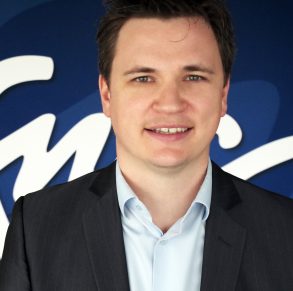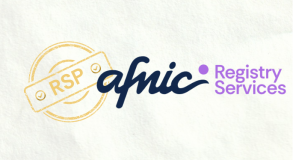You may already have noticed the new trend among advertisers: Carglass, Europe’s version of Autoglass by Belron, ends its TV commercials in France with “Don’t forget to type ‘dot FR’ to make sure you find us” or “Don’t just type Carglass, go to carglass.fr”
The same thing on the radio: “See you at carglass.FR. Don’t forget: carglass dot FR.”. The French brand Comme j’aime, in its commercial, also reminds us “And above all, don’t forget the dot FR!”
Why ask listeners and viewers to be sure to type dot FR?
It’s all about SEA (search engine advertising). The key words “Carglass” and “Comme j’aime” are bought by rivals of the two brands. To protect themselves, these brands ask their audiences to enter their actual domain name rather than just their brand name in the search bar. Entering a domain name in the address bar launches a search for this word in the search engine defined by default in the browser, whereas entering the domain name takes you straight to the right website. Worse still, anyone using voice search will automatically be taken to the first and only result. So, for example, asking your voice assistant to look for “Carglass” may paradoxically take you to a competitor of Carglass that has invested in the key word “Carglass”.
Two complementary objectives:
1. Countering rivals and making sure all searches for its brand end up at the right place
At the time of writing, for the key word “Carglass”, Google SERP1 gives four sponsored results, of which two by Carglass, in second and fourth positions. And the top result is unsurprisingly the Carglass website. The results depend on the search engine’s algorithm, and with SEA (whether sponsored search or paid inclusion) the top spot does not always go to the highest bidder (it’s more complicated than that, and is not the subject of this note). What is certain is that Carglass invests heavily in advertising (TV, radio and SEA, among others) and it’s clear that its rivals set their sights on the key word “carglass” in order to try to capture its customers. By asking its own customers and prospects to go directly to its website, while still focusing on the key word “carglass”, the brand is seeking to ensure they come to it directly. The striking thing is that it gives pride of place to the domain name and the URL, which search engines tend to conceal as much as possible. Having succeeded in instilling its slogan Carglass répare, Carglass remplace (Autoglass repair, Autoglass replace in the UK!) in our minds, is the brand also going to ingrain “carglass.fr” instead of just “carglass”?
In his blog article on the subject, Olivier Andrieu rightly points out that the more players bank on the key word “Carglass” (without going into the ethical aspects of buying one’s competitor’s name as a key word and accepting this practice), the higher the bidding goes and the higher the budget becomes for remaining well placed in the results ranking (including for the company Carglass itself).
2. Reducing expenditure on online advertising
We are all familiar in France with the Comme j’aime commercials, which offers slimming diets endorsed by personalities such as Henri Leconte and Benjamin Castaldi. This year, Comme j’aime has used the same strategy in its TV commercials, encouraging users to go straight to commejaime.fr.
In the results of the Google search I just entered, Comme j’aime was in a different position in the SERP. While there were four sponsored results, none of them was from Comme j’aime itself, which was nonetheless in first position on the first page. We can suppose that by asking viewers “don’t forget to include dot FR”, the brand is seeking to optimise its online advertising expenditure and to break free of dependence on Google Ads.
In both cases, the recentring of brand communication on the domain name is interesting and pertinent. Just as in years gone by they repeated their toll-free ten-digit number twice to direct customers to their telephone platforms, so in these two examples they repeat as many as three times the .FR domain name (we know that advertisers like to repeat their brand names as many times as possible during commercials). We welcome this effort to educate Internet users, who have mostly fallen into the habit of automatically entering everything they need in their search engine.
One important point: carglass.fr and commejaime.fr both pass the “radio test”: they are simple, readable and easily memorised. To be able to emulate their strategy, it is in brands’ interests to have an effective domain name.
The domain name lives on!
In my previous note, I explained how brands used their domain name and particularly the TLD to give information about their brand and especially their audio identity or sound branding. We can see once again, with the initiative taken by these two brands, the benefits of communicating the domain name, not just to accustom users to enter it directly, but also to create the brand’s audio identity. In my last article, I explained how some brands, not just the pure players, were in fact domain names (entreparticuliers.com, 118712.fr, seloger.com, etc.). This is a strategy not so much to educate their customers as to establish their audio identity. Will the next step be to ask visitors to add the website to their favourites?
… and above all, don’t forget the dot FR!



